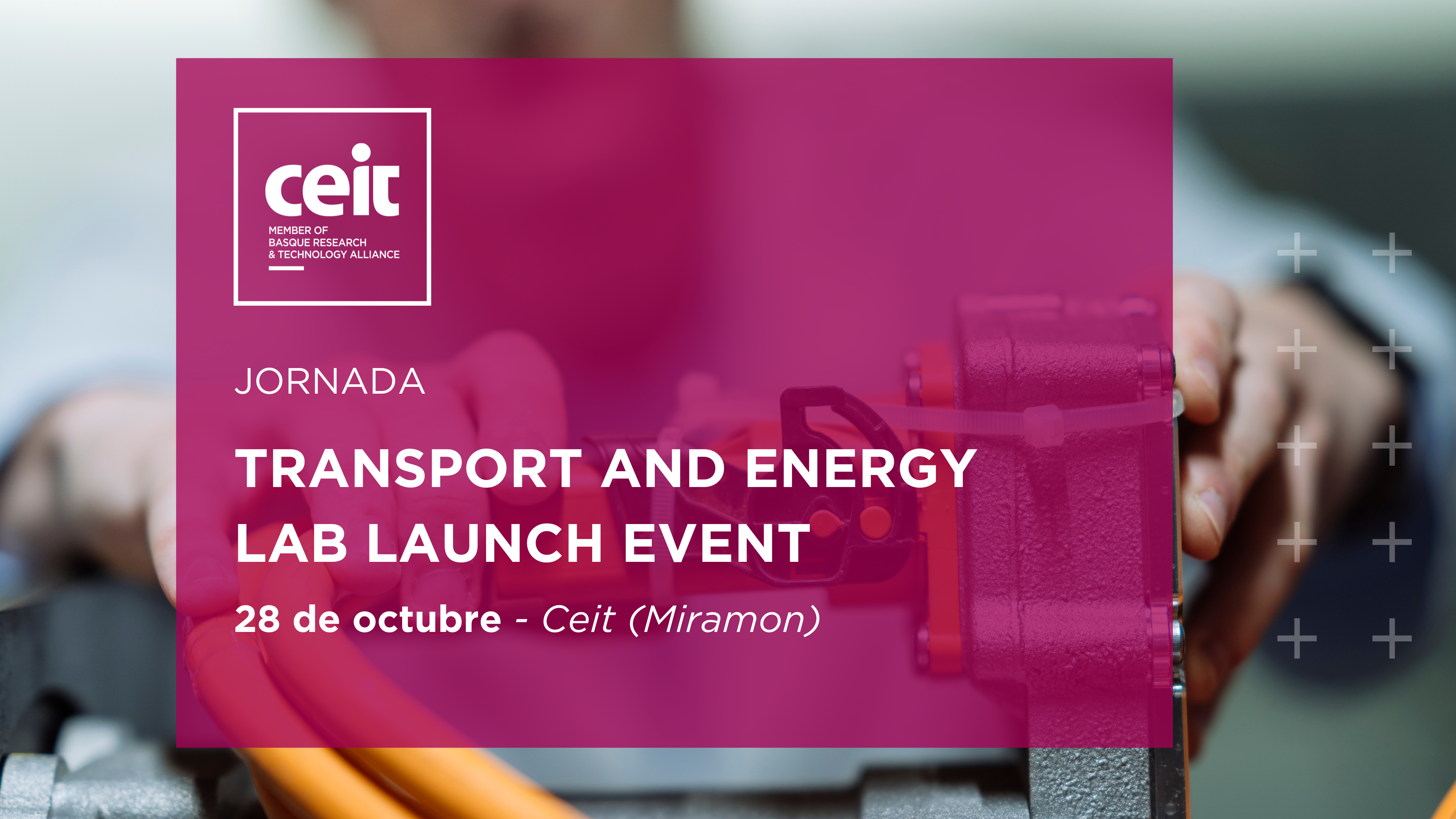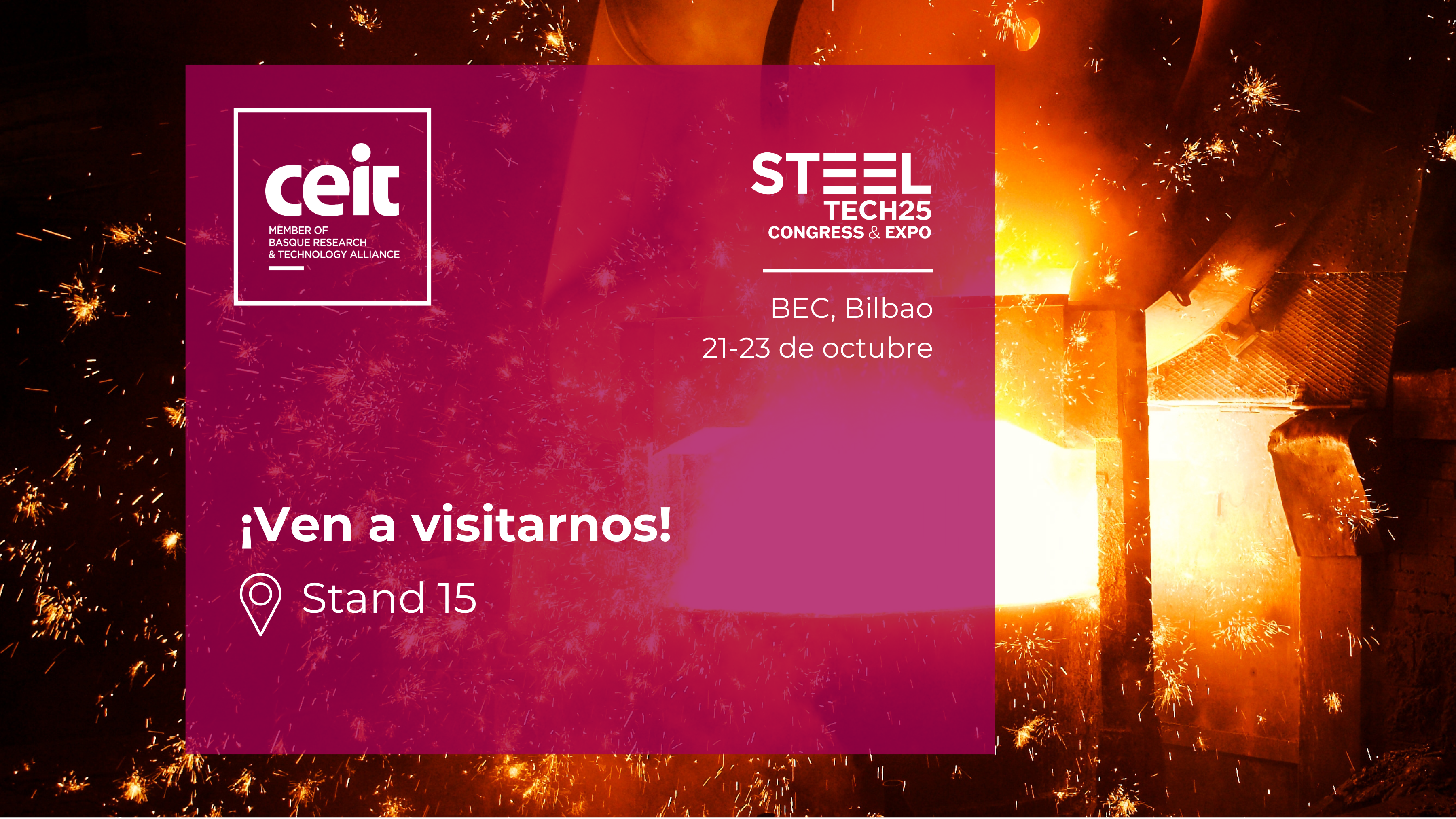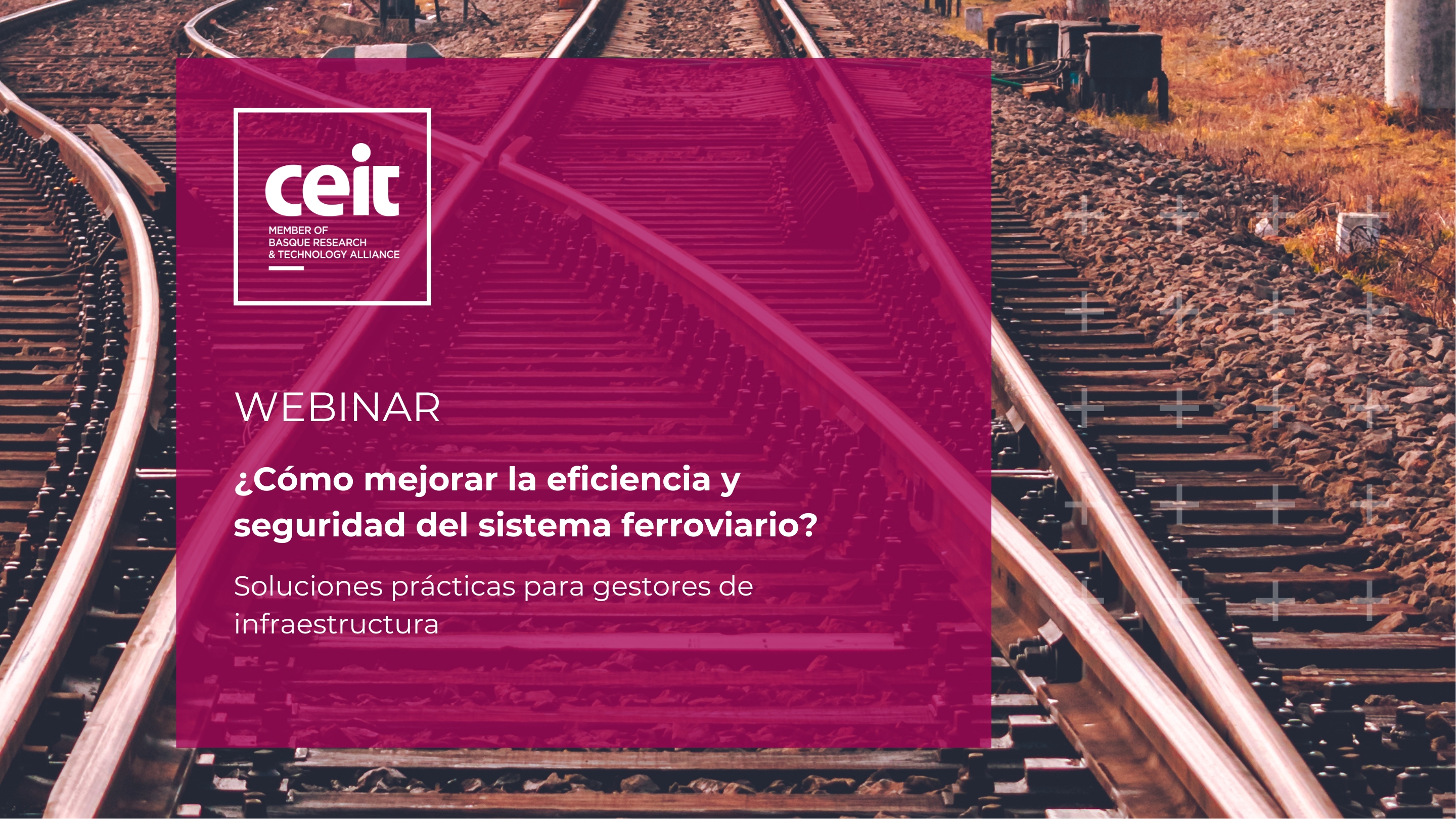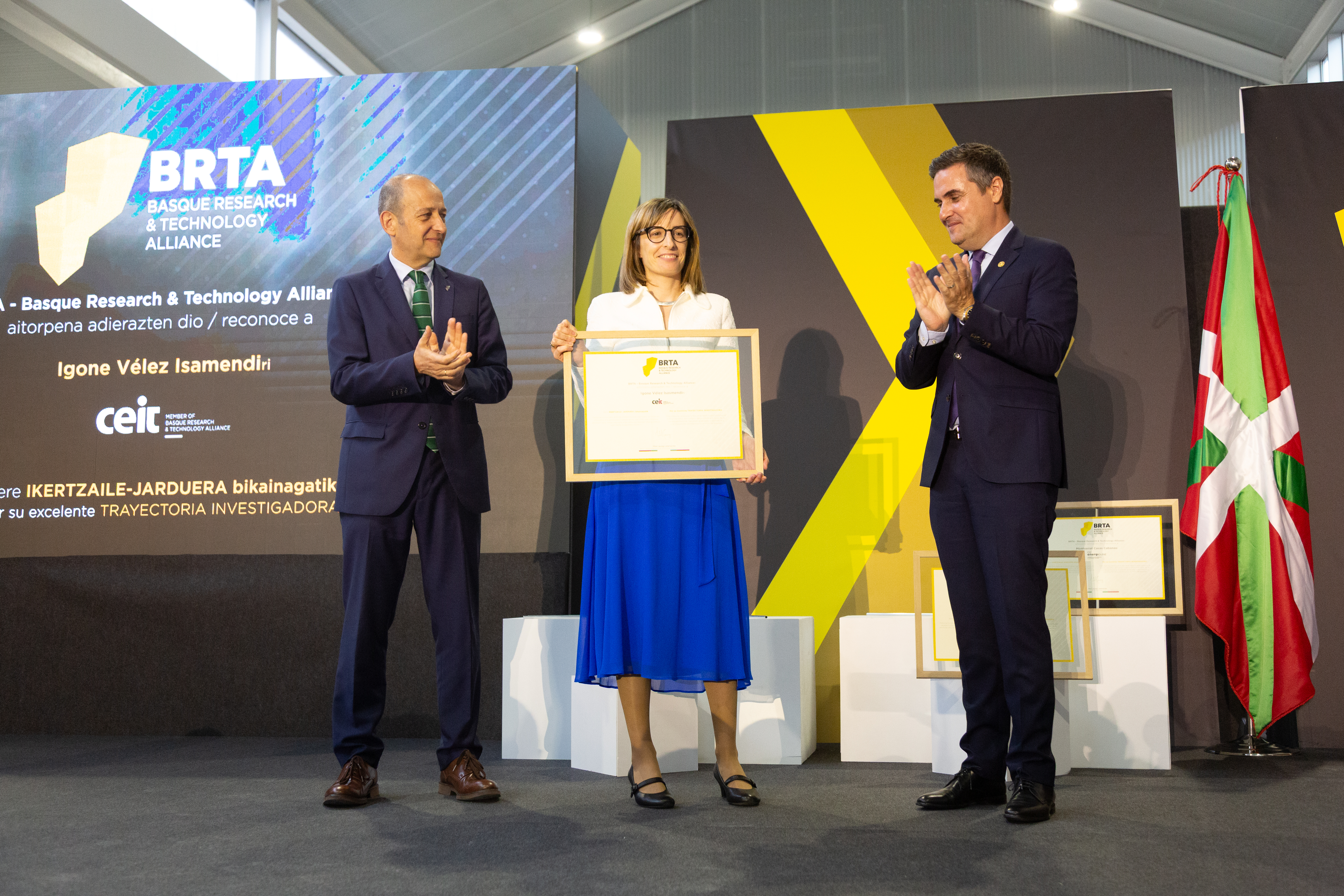Gipuzkoa moves forward in bioeconomy with a new agreement between the Provincial Council and CEIT
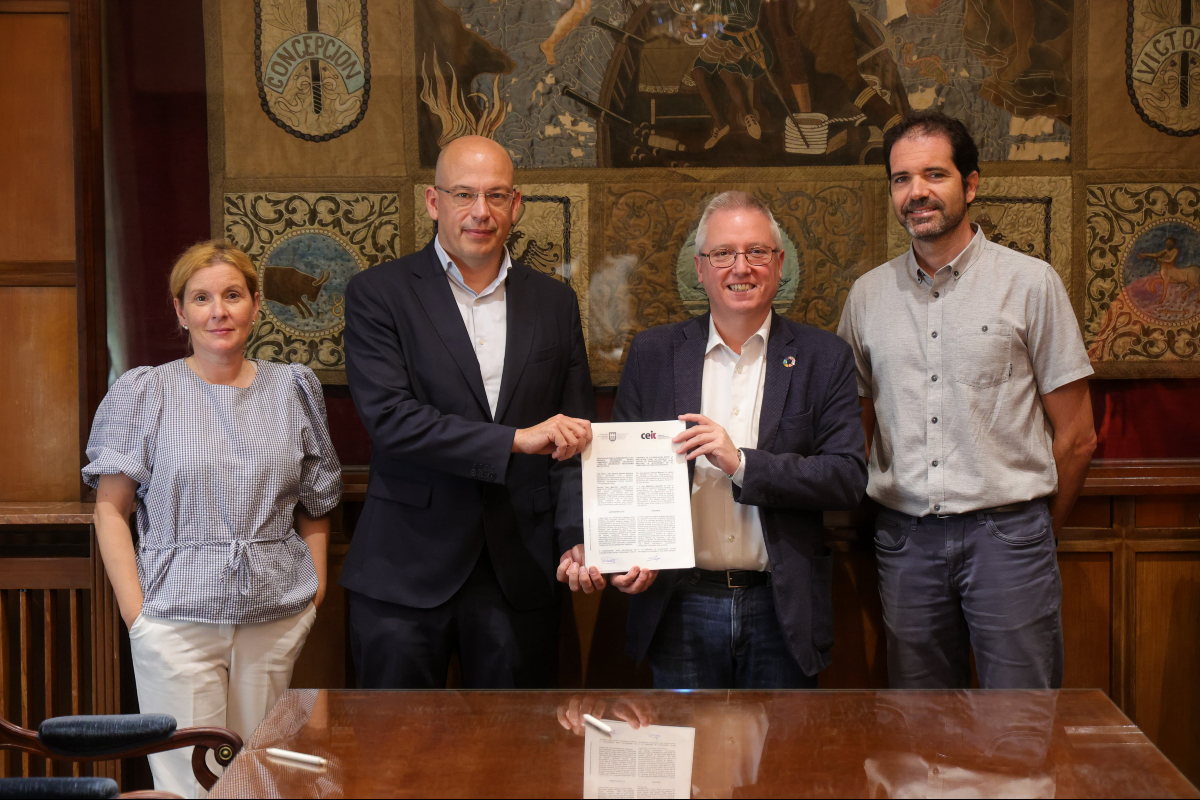
22 | 07 | 2024
This agreement, endowed with 165,000 euros by the Sustainability department of the Provincial Council of Gipuzkoa, will continue the line of research started in 2023 and will focus on the development of a biomethane biorefinery, biomass recovery and the implementation of new technologies for the management of waste.
José Ignacio Asensio: "The research and the development of a biomethane biorefinery, as well as the valorization of organic waste, will allow us to make better use of our resources and reduce our ecological footprint. We are committed to making Gipuzkoa a benchmark in bioeconomy and sustainability, and this agreement is a clear example of our determination to achieve this".
Juan Meléndez: "This agreement reflects the commitment of both entities to continue researching and developing technology that can help the territory to advance in circular Economics and recycling".
In an effort to promote sustainability and circular Economics in the territory, the deputy of Sustainability, José Ignacio Asensio, and the general director of the technology center CEIT, Juan Meléndez, have signed a partnership agreement. This agreement, supported with an investment of 164,150 euros by the Sustainability department of the Provincial Council of Gipuzkoa, has as goal develop research in bioeconomy and promote innovative projects that strengthen the efficient use of resources and the recovery of organic waste.
This partnership continues the line of research started in 2023 and focuses on several strategic objectives for 2024. These include the integral pre-design of the first biorefinery in Gipuzkoa, intended for the production of biomethane, as well as the research of new lines for the valorization of different biomasses. In addition, software will be developed for the incorporation of new biomasses to the biorefinery and alternatives for the valorization of the digestate produced will be studied.
Thanks to this agreement, in 2024 it is expected to reach the characterization of waste from a sample of companies that represent about 80% of the industrial organic waste of the territory. This effort expands the work carried out the previous year and will also be extended to agro-livestock waste, given its importance in terms of Issue production and environmental issues.
The activities foreseen in this agreement include: the characterization of biomass from the agri-food sector, the characterization of waste from the agro-livestock sector, the determination of the optimal mix of characterized waste and its biomethane production potential, the study of the scalability of the process and the industrial pre-design of the future biorefinery and the realization of a market research to evaluate the economic feasibility of installing a biorefinery in the territory, based on a model of partnership public-private .
In this regard, the Deputy for Sustainability, José Ignacio Asensio, pointed out that "this agreement represents a significant step towards a more sustainable future for Gipuzkoa. By collaborating with the technology center CEIT, in addition to investing in innovation and technology, we also collaborate in environmental protection and the circular Economics . The research and the development of a biomethane biorefinery, as well as the valorization of organic waste, will allow us to make better use of our resources and reduce our ecological footprint. We are committed to making Gipuzkoa a benchmark in bioeconomy and sustainability, and this agreement is a clear example of our determination to achieve this."
For his part, the general director CEIT , Juan Meléndez, wanted to thank the confidence placed again by the department Sustainability of the Provincial Council of Gipuzkoa: "This agreement reflects the commitment of both entities to continue researching and developing technology that can help the territory to advance in the circular Economics and recycling," said Meléndez.
This agreement is part of the Comprehensive Plan of management of Urban Waste of Gipuzkoa 2019-2030 (PIGRUG 2019-2030), which in its action REC-5 seeks to boost the activity of the reuse and recycling cluster, GK Recycling, to promote circular Economics and recycling in Gipuzkoa. This action includes the development of a strategic plan, the promotion of pilot actions in research and development+i, and the expansion of the cluster with more technology centers, universities, foundations and companies from Gipuzkoa.
The participation of universities, technology centers and companies in this cluster, which currently has 110 members, aims to make a more efficient use of resources, reduce the extraction of raw materials from the natural environment and promote the reuse or recovery of materials present in waste.
CEIT has extensive experience in areas related to the bioeconomy, including the management and valorization of organic waste, the recovery of compounds in wastewater, and various advanced biological treatments. This experience is fundamental to achieving the objectives set out in this partnership agreement.

